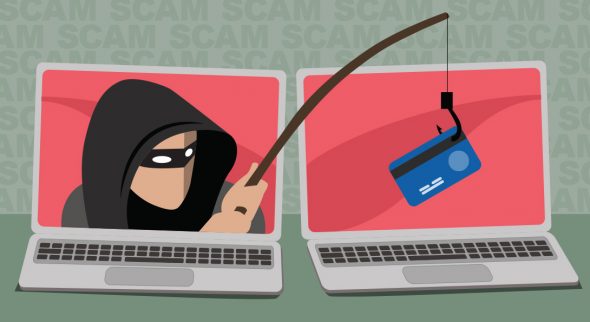Information Security & Keeping Your Data Safe Online
As cyber crime is on the rise globally, UIC Technology Solutions is taking proactive steps to protect community members from malicious emails. Still, some may make it into your inbox! UIC students, faculty and staff should be able to recognize potential cyber threats such common ones listed below:
- Email Scams
Cybercriminals impersonate a person, company, organization, or other entity and send an email with the goal to get you to open a file attachment or click on a link to get you to enter your NetID and password; this is also known as “phishing”. - Job Scams
Fraudulent job offerings that attempt to steal sensitive information or request funds in the form of cash transfers, Bitcoin payments, or gift cards. - Phone Scams
Cybercriminals pose as charities, banking institutions, healthcare organizations, and even local authorities, calling and harassing students with false claims, and requesting immediate payment to avoid phony negative consequences.
Learn more about scams, red flags to search for and how to stay safe online: go.uic.edu/onlinesafety
Information Security at UIC
The Technology Solutions Information Security team is committed to securing its institutional data and the personal information of everyone at the University and has taken proactive steps to protect community members including:
- Adding Duo 2-Factor Authentication (2FA) to University Systems
When logging in to university systems using your NetID and password, 2FA requires you to verify your identity using a second factor, such as a mobile device and prevents anyone but you from logging in, even if your password has been compromised. This greatly enhances protections on your account and data that are vulnerable to phishing attacks. - Implementing Safe Links
Part of Microsoft’s Defender platform, which better protects email users from malicious links by scanning URLs before loading the web site. - Updating Spam Filtering
This change improves overall UIC email delivery security by recognizing and deleting malware, and automatically filtering spam email to the spam folder.
- REMINDER: We suggest that you periodically check your Junk Email/Spam folder in case any messages are incorrectly marked as spam, and report any phishing attempts that do make it to your inbox.
- Learn how to check your junk folder in Microsoft Outlook and Gmail.
Defend Yourself from Cyber Crime
To report any suspicious emails that do make it to your inbox or report scam attempts please email: security@uic.edu.
Categories

